6 special policies
With the health support policy, Da Nang has allocated about 123 billion VND to buy 181,700 health insurance cards for the poor, near-poor, and those escaping poverty. In addition, units and localities mobilized support for medical examination and treatment, screening, support for reducing hospital fees, medical examination and treatment costs, and providing free medicine for 27,456 poor people with a budget of more than 26 billion VND.
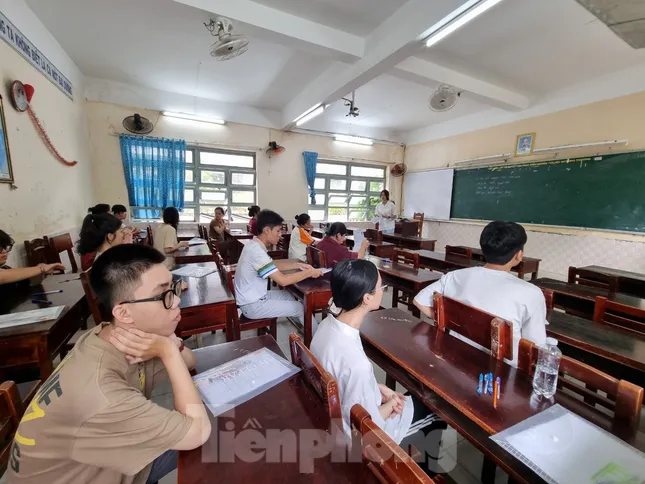 |
Da Nang exempts nearly 58 billion VND in tuition fees for thousands of poor students, near-poor households, and households escaping poverty. Photo: Thanh Hien. |
During the 2021-2025 period, the city has exempted nearly VND58 billion in tuition fees for about 52,000 poor students, near-poor households, and households escaping poverty. In addition, the city's mass organizations and the Education Promotion Association have mobilized resources to support scholarships, school supplies, and bicycles for students from poor households. "100% of children from poor and near-poor households have access to the city'seducation support policies and create conditions for children from poor households to purchase equipment for their studies, contributing to reducing the dropout rate," said the city leader.
Another very practical policy for the poor is housing support, with more than 400 newly built houses and 2,572 repaired houses; 50% reduction in land use fees within the residential land limit for poor households according to central standards; 50% reduction in rent for state-owned apartments for nearly 1,358 poor and near-poor households according to city standards; and arrangement of 55 state-owned apartments for poor households in especially difficult circumstances.
The poor in Da Nang also benefited from credit support policies. More than 4,500 households borrowed capital to produce and do business, develop the economy and increase income with a total amount of nearly 230 billion VND.
The city also spends about 28 billion VND to support electricity bills for poor households; 52 billion VND in monthly social subsidies for people in poor households according to the city's standards with especially difficult circumstances, poor households with no working capacity...
The People's Committee of Da Nang City added that currently, 11/11 communes in the area have met the new rural standards; 8/11 communes have met the advanced rural standards according to the city's criteria; 2/11 communes have met the model rural standards; 3/113 are smart villages. Rural infrastructure has developed rapidly and been improved, especially in terms of transportation, irrigation, infrastructure systems serving production development; education, health, culture, and environment have changed significantly; the political system is strong; social security and order are ensured; the quality of life of rural people is getting better and better.
The city has also invested in building and upgrading nearly 90 km of rural roads and alleys; 134 km of lighting for people's lives; 43 km of intra-field roads for production; 58 km of irrigation canals... Along with that are many projects and plans to promote production development to increase income; forming many specialized production areas, replicating effective production models; building new production models, high-tech application models, implementing the program of building model gardens, economic gardens... contributing to production development and increasing people's income.
Focus on developing production and employment
Mr. Le Trung Chinh, Chairman of the People's Committee of Da Nang City, acknowledged: "The coming time is a historic moment when implementing the 2-level local government model and merging with Quang Nam province. The city must still identify poverty reduction and new rural construction as a major and consistent policy of the Party and State, and an important political task."
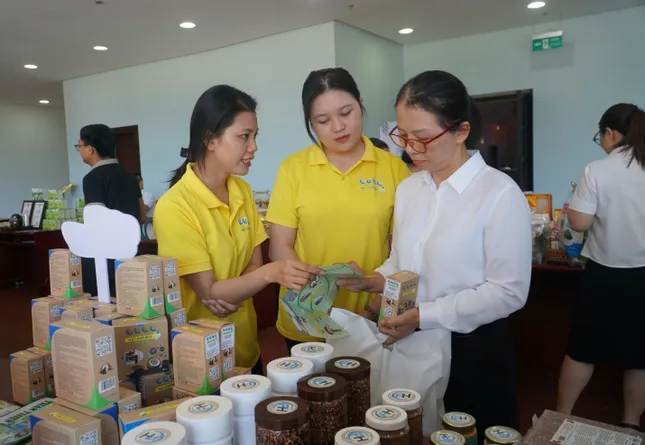 |
OCOP products are one of the key solutions to develop agricultural and rural economy, and increase people's income. |
The City Chairman suggested that functional units should focus on researching and developing policies and tasks suitable to the practical situation after the merger. Priority should be given to three main policy groups: Supporting production development, supporting labor - employment, and increasing income for poor households; Supporting the poor to access basic social services, prioritizing services associated with multidimensional criteria such as health, education and training, housing, clean water and environmental sanitation, information and communication to ensure effectiveness in accordance with Resolution 57 of the Government; Developing infrastructure in disadvantaged areas, areas with high poverty rates, prioritizing the development of essential infrastructure such as transportation, schools, medical stations, small irrigation and domestic water.
Particularly for the National Target Program on New Rural Development (NTM), it must be determined that NTM construction is essentially the industrialization and modernization of the agricultural and rural sectors. Therefore, NTM construction must be linked to restructuring the agricultural sector and implementing local socio-economic development plans and plans. After the merger, it is necessary to review the Project on restructuring the agricultural sector towards increasing value and sustainable development associated with NTM construction. Maximize the potential and advantages of land, climate, and natural conditions to develop the agricultural economy. Build concentrated agricultural and forestry raw material areas that meet VietGap and GlobalGap standards, associated with intellectual property protection.
At the same time, promote the implementation of the OCOP program associated with key agricultural and forestry products, local specialties according to the value chain, combined with attracting investment and developing tourism. Consider this as one of the key solutions to develop the agricultural and rural economy, and increase people's income.
The City Chairman also noted vocational training for rural workers, encouraged businesses to participate in training, and improved the quality of rural labor. In addition, it is necessary to pay attention to training and improving the capacity of cadres working on new rural construction at the commune and village levels to improve the quality of consulting work, proposing and implementing mechanisms, policies, programs, and projects suitable to the specific conditions of the region after the merger.
Source: https://tienphong.vn/da-nang-giam-ngheo-an-tuong-voi-cac-chinh-sach-dac-thu-post1748185.tpo









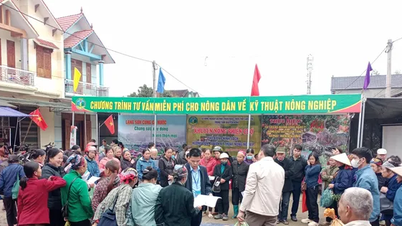
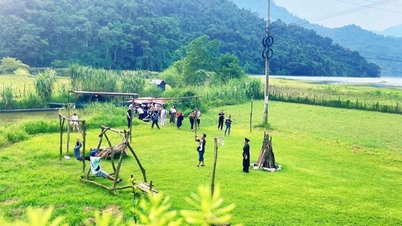

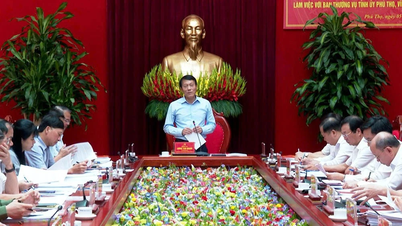
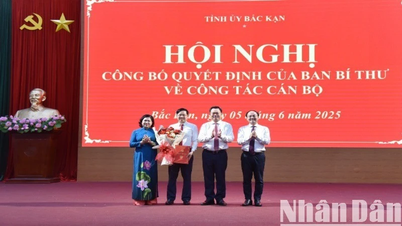
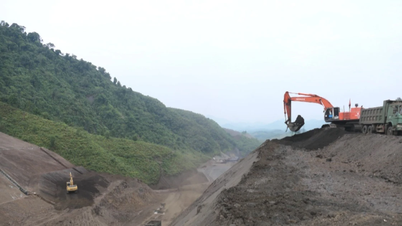





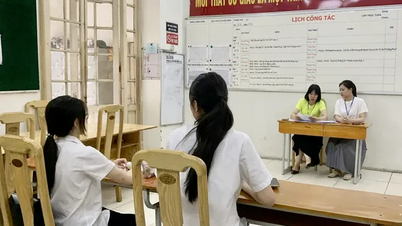
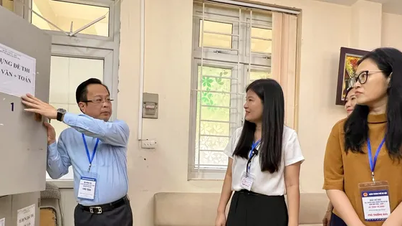









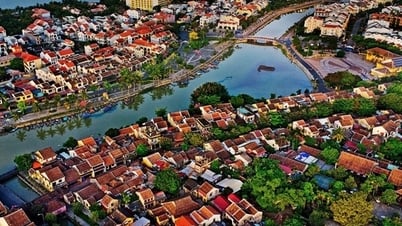



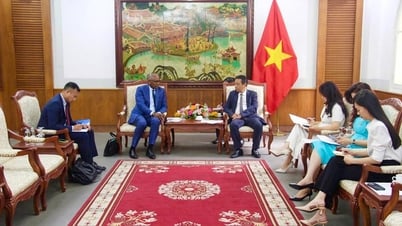

















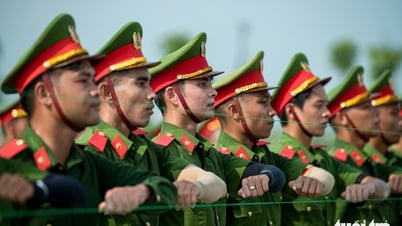




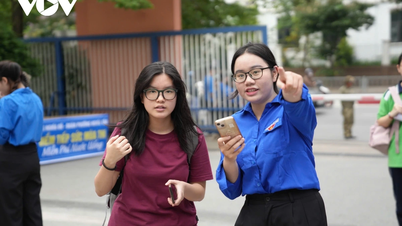


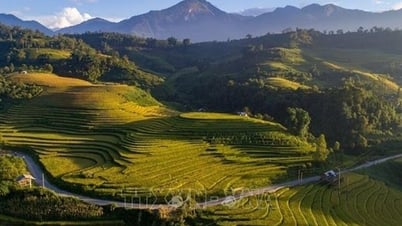





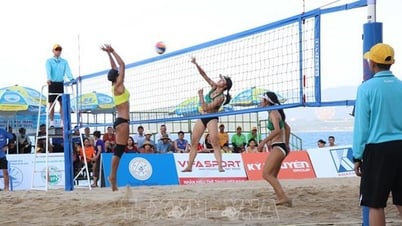
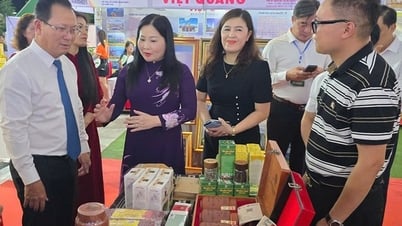
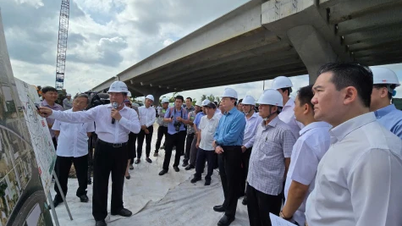

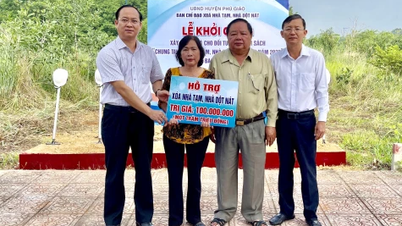
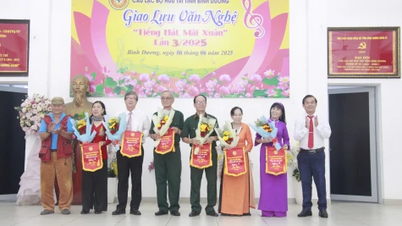
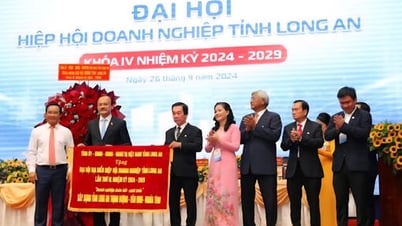

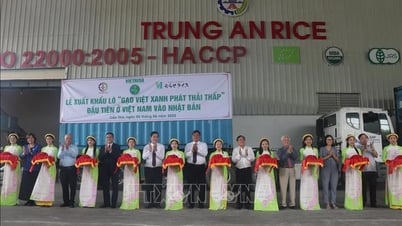

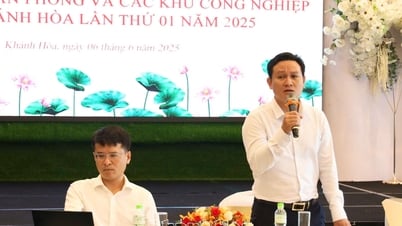



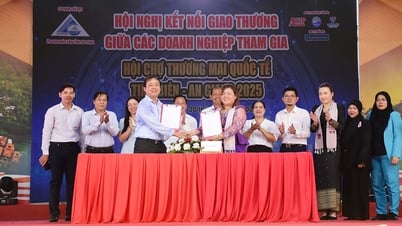

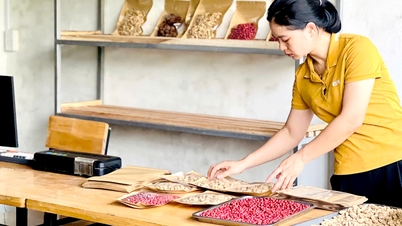







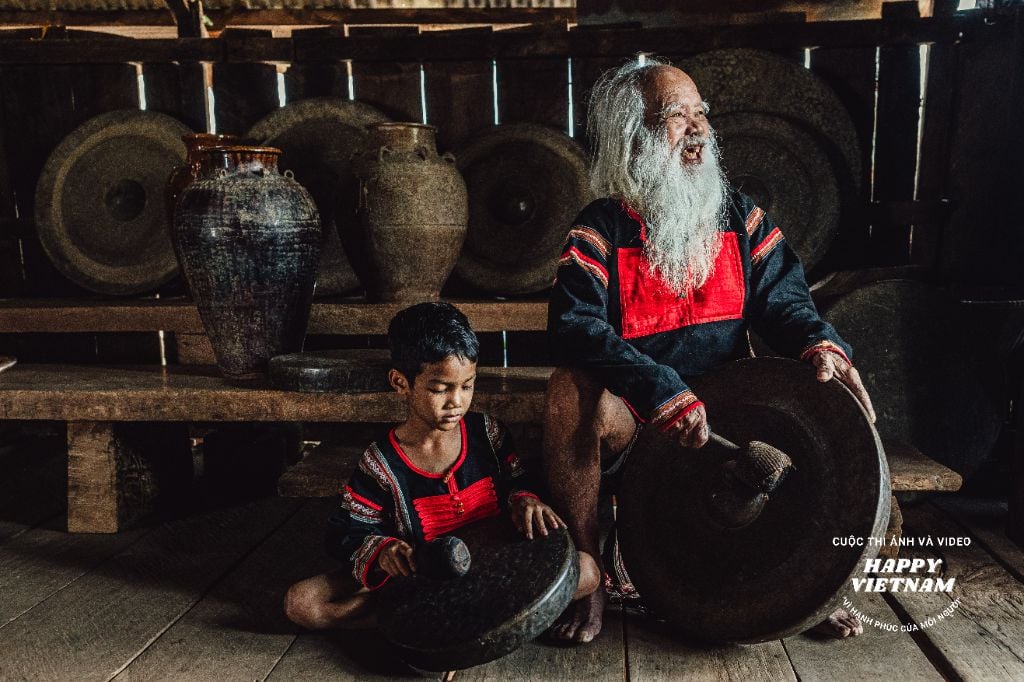


Comment (0)